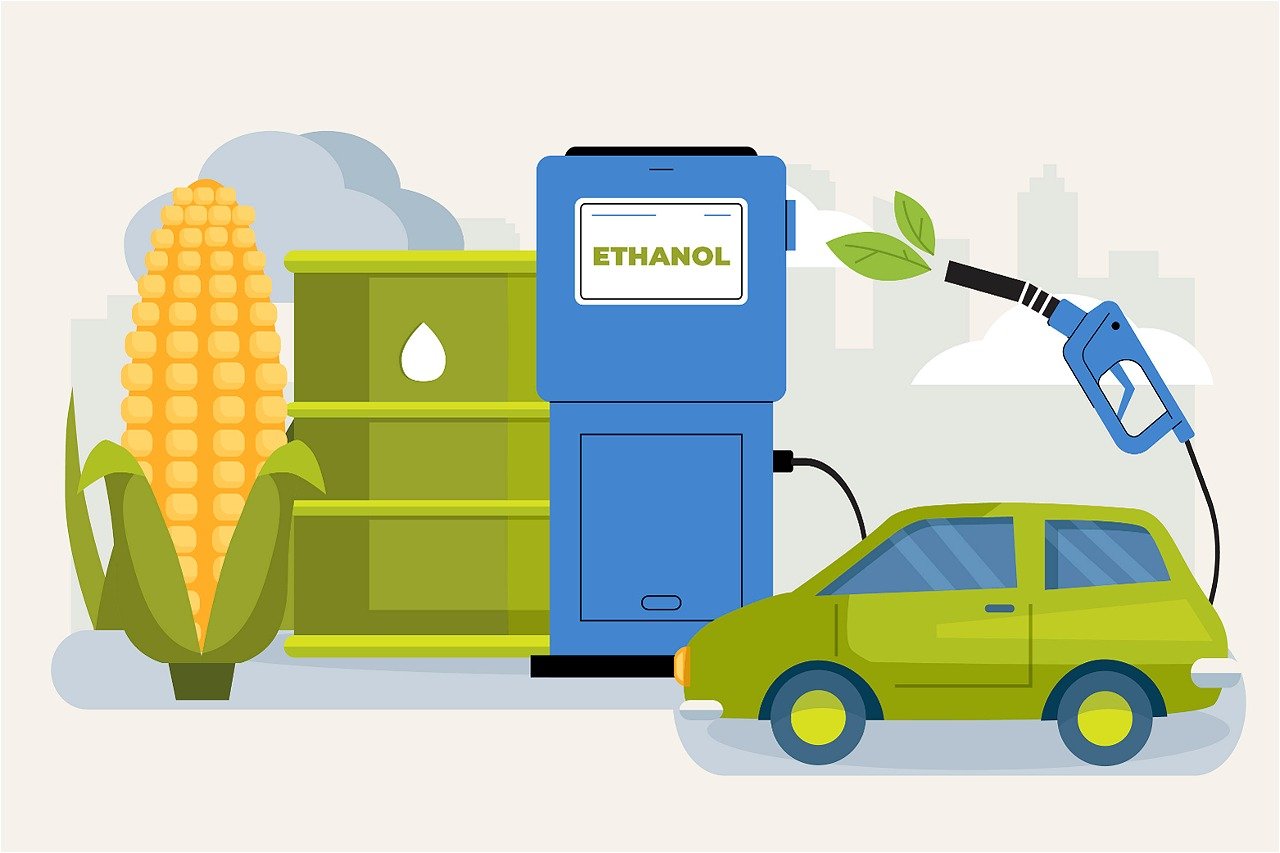John Deere are set to introduce their ethanol engine at the Agritechnica trade fair in Hannover, Germany. This innovative 9.0-liter engine is a groundbreaking move towards its ‘Leap Ambitions,’ a set of the company’s goals to supply low or zero-carbon emission solutions by 2026. John Deere’s biochemical shift from hydrogen to alcohol-based fuel like ethanol signifies a possible revolution in the agricultural industry power systems.
By presenting an ethanol-powered engine, John Deere emphasizes the relevance of renewable fuels used in agriculture. The feedstocks include corn, wheat, and sugarcane, making ethanol a renewable energy source available in abundance compared to fossil fuels. Due to its high octane rating, the fuel is ideal for spark-ignition engines, ensuring that high-performance requirements are met in heavy-duty operations and equipment.
Through the successful modification of spark-ignition technology with ethanol, John Deere has indicated that the company’s engineering skills and capacity to create new solutions within the current framework of combustion engine structures could provide a quicker option in combating global warming than embracing more drastic forms of technological changes.
The capital cost approach means that the farmers and the companies that are into agricultural businesses can change to environmentally friendly practices out of their current equipment without purchasing new equipment, offering a pragmatic way to address environmental pressures in the agriculture industry.
The ethanol engine concept of John Deere has potential impacts on the agricultural field and other related industries in the following ways. As it uses a fuel that can be made from crops, the technology may be mutually beneficial to the farming industry and fuel production, possibly creating new sources of income for farmers.
It indicates that in the near term, alcohols, especially ethanol fuels, could be more critical in the transition from fossil fuels, especially given that this would appear to offer value-added potential over hydrogen given the ready availability for ethanol production and distribution.
A landmark step toward environmentally friendly agriculture: John Deere’s ethanol engine
Amid the growing pressure to counteract climate change and decrease the carbon footprint of factories, this approach to driving massive equipment is an effective solution. Although there are issues with expanding the ethanol market and retrofitting the current machinery, John Deere’s daring move may herald a future primarily run by the crops farmers cultivate, a circle of life in the agricultural industry.
To learn more about the future of zero-emissions off-highway vehicles, hear keynote speeches about the latest innovations in the field, and visit a wide array of exhibitors, book your tickets to the DZOM EXPO, taking place at the Donald E. Stephens Convention Centre in Chicago, IL, on December 3–4, 2024.
For more information, visit our website or email us at info@innovatrix.eu for the event agenda.
Read this article over on the Innovatrix blog and discover our other articles and events.
Source:


